We talked before the importance of character arcs. I’d like to illustrate a few more famous characters and their journeys. The hope is it helps you think about your own characters and their journeys. I mentioned in the last article that characters gotta change. Like every other screenwriting rule, this one can be broken. Let me be more specific: I recommend to you that your characters change during the course of the movie. There are famous examples where this doesn’t happen though:
- Scarface
Tony Montana is an animal on page 1 of Scarface. Straight-up criminal off the boat from Cuba. He takes a job at a taco stand but he’s got his eye on more. Life as the pursuit of more. His journey commences through the drug trade, through murder and mayhem and mountain of cocaine. He becomes a boss, rich beyond belief. Ironically, it’s only when he won’t kill a target that his empire comes under fire and he is taken down. When Tony Montana is killed, yeah, he might have a regret about killing his best friend and getting his sister killed, but his nature is essentially unchanged. He’s an animal. “Say goodnight to the bad guy!”
- Citizen Kane
Maybe I’m wrong here but…does Kane really change? Here’s the quick synopsis from Wikipedia:
Flashbacks reveal that Kane’s childhood was spent in poverty in Colorado (his parents ran a boarding house), until the “world’s third largest gold mine” was discovered on the seemingly worthless property his mother had acquired. He is forced to leave his mother (Agnes Moorehead) when she sends him away to the East Coast of the U.S. to live with Thatcher, to be educated. After gaining full control over his possessions at the age of 25, Kane enters the newspaper business with sensationalized yellow journalism. He takes control of the newspaper, the New York Inquirer, and hires all the best journalists. His attempted rise to power is documented, including his manipulation of public opinion for the Spanish American War; his first marriage to Emily Monroe Norton (Ruth Warrick), a President’s niece; and his campaign for the office of governor of New York State, for which alternative newspaper headlines are created depending on the result.
Kane’s marriage disintegrates over the years, and he begins an affair with Susan Alexander. Both his wife and his opponent discover the affair, simultaneously ending his marriage and his political career. Kane marries his mistress, and forces her into an operatic career for which she has no talent or ambition. Kane finally allows her to abandon her singing career after she attempts suicide, but after a span of time spent in boredom and isolation in Xanadu, she ultimately leaves him.
Kane spends his last years building his vast estate and lives alone, interacting only with his staff. The butler recounts that Kane had said “Rosebud” after Susan left him, right after seeing a snow globe.
This film has been called the greatest American film of all time, perhaps the greatest film period. But I asked you: How does the man change? One could say he betrayed his roots of poverty. His last word, “Rosebud”, referring to the sled, to his happy childhood days despite the lack of money. His “idealistic early publishing days” are barely seen. The rest of it is Kane doing what his does best–accumulating power. No wonder this movie wasn’t sanctioned by William Randolph Heart. Wells brilliantly and relentlessly shows what the spoils of power bring.
- Being There
A simple-minded gardener named Chance has spent all his life in the Washington D.C. house of an old man. When the man dies, Chance is put out on the street with no knowledge of the world except what he has learned from television. After a run in with a limousine, he ends up a guest of a woman (Eve) and her husband Ben, an influential but sickly businessman. Now called Chauncey Gardner, Chance becomes friend and confidante to Ben, and an unlikely political insider.
When they tell you characters have to change, ask them about this movie. The Peter Sellers character of Chauncey Gardener is one of his greatest roles for its restraint. Just as with Kane, same as with Tony Montana–The character doesn’t change, his circumstance does.
- The Fugitive
Same deal here. The doctor, played by Harrison Ford, loves his wife at the top of the movie. He loves her (in death) at the end. He’s essentially the same man. His journey, and the movie’s, is to prove his wife’s innocence. Sure, he makes discoveries about a former friend who betrayed him. He also puts his life on the line and jumps from Hoover Dam in his quest. Tommy Lee Jones, the FBI cop who stalks him, comes to realize this is an innocent man, but it’s not until 130 minutes of non-stop thriller action. The circumstances of plot change, not the doctor.
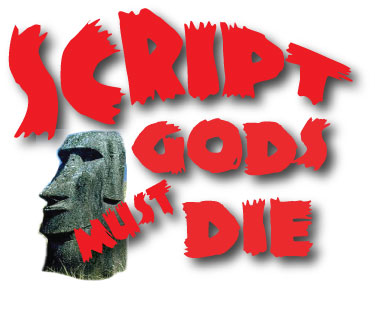
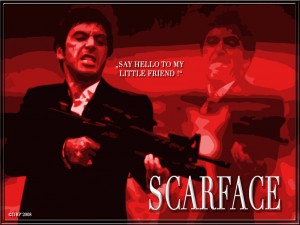
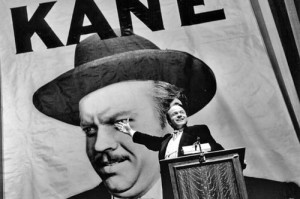
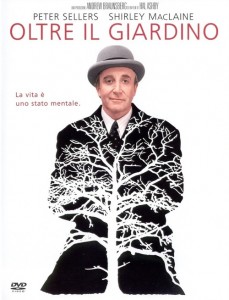
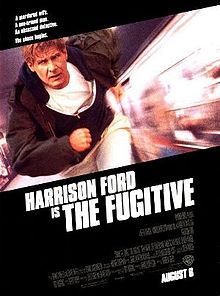

Thumbing through “The Hero with a Thousand Faces,” by Joseph Campbell- the man who coined the term “Hero’s Journey”- made makes a very clear distinction between The Call to Adventure and The Refusal of the Call, which has been merged together nowadays. He posited that a hero does one or the other, but nowadays it’s like you can’t have one without the other! But to Campbell, when a hero refuses the call, he refuses to grow, and everything he touches turns to poison, which can be fascinating to watch when done correctly. Tony Montana, Charles Foster Kane and the more recent Daniel Plainview- three men who build huge empires utilizing the same ruthless practice that earned them their first penny- fit this mold perfectly. Other examples could be Willy Lohman, Michael Corleone, and any number of Greek Tragedies.
The catharsis comes in when characters are given the opportunity or insight to take that other, nobler path, then turn it aside to hold onto their empire/delusions.